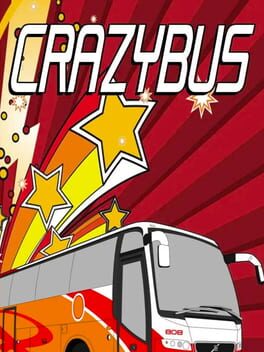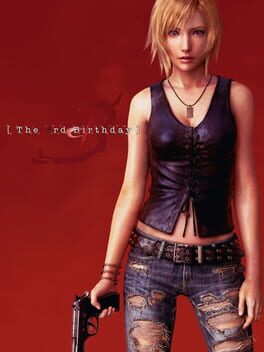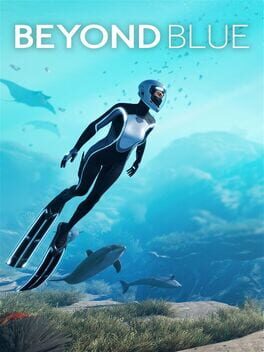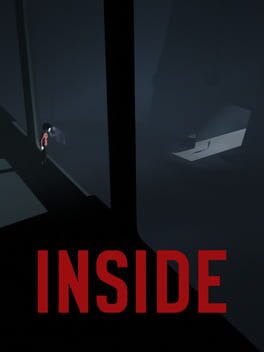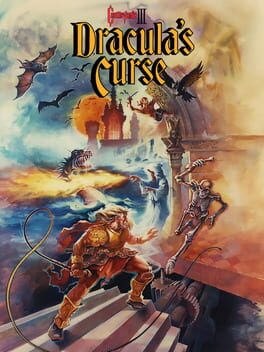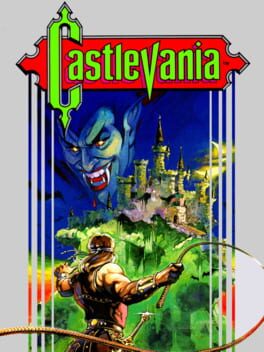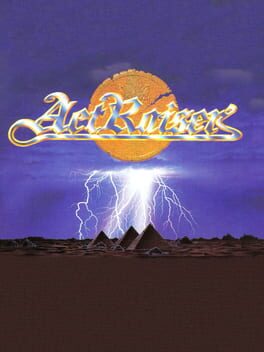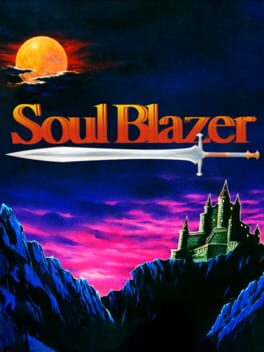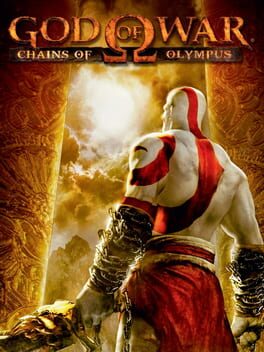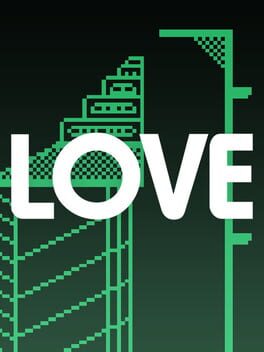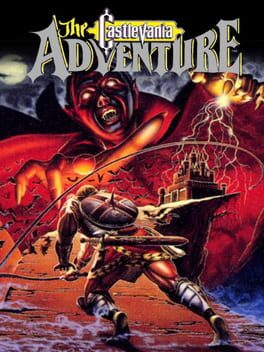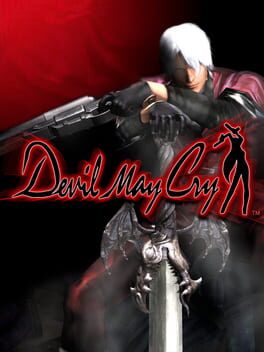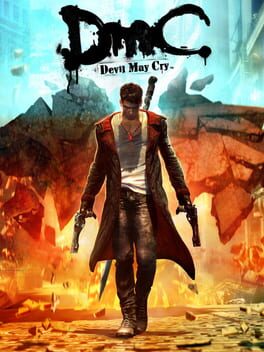Powerforce
BACKER
2004
2010
It was 2010. It wasn't my 3rd birthday, and I didn't know this game existed.
Now it's 2023 and I know it does exist. The simpler times are long gone and while no cakes were harmed or birthdays were ruined during the making of this game and the writing of this review (but certainly could be if you gifted this to someone for their birthday), this was overall pretty bad.
To begin with the positives, I like the music and the graphics (compared to most things on the PSP) are among the handheld's best. That's pretty much it.
The story is weird and not in a good way. From what I could gather, you don't need to play Parasite Eve 1 and 2 to understand it, but nevertheless, it's confusing and paced like a Rick and Morty episode. It's all over the place and you never get a good explanation for much of it until the very end of the game.
You can read stuff concerning characters before the beginning of a mission (or as they're called in-game - episode), but it feels lazy that they went with this route rather than incorporating it into the gameplay and cutscenes.
The body switching mechanic (called Overdive) is a cool idea, but everything surrounding it brings it down. Beyond giving the AI orders to focus on one target, you can't really tell them what to do, so a lot of strategy and depth which would've benefitted the game is not there. The friendly AI itself kinda stands there and just shoots. It's not well designed and you have to really try to go out of your way to keep it alive.
The worst thing, however, are the controls. At times they make Shaq Fu look like a masterpiece. There's a clunkiness to them that makes you feel like you're walking on a wet floor. The camera doesn't help, and oftentimes adds to that feeling. At least they added an auto-aim for most weapons, which is nice. Be prepared for a lot of frustration even with that, as enemies even on normal difficulty don't show much mercy and can quickly kill you, on top of also being bullet sponges.
The game would've been fine on the gameplay side of things if it was initially designed for PC/PS3/XBOX360. The PSP was a bad choice for this type of shooter. Considering the first two games of the series, it would've been best if this was an RPG like them.
The story, preferably, also needs an overhaul.
The 3rd Birthday, more like The 3rd Disappointment, am I right? :P
Yeah, in its current state, I wouldn't recommend it to anyone.
Now it's 2023 and I know it does exist. The simpler times are long gone and while no cakes were harmed or birthdays were ruined during the making of this game and the writing of this review (but certainly could be if you gifted this to someone for their birthday), this was overall pretty bad.
To begin with the positives, I like the music and the graphics (compared to most things on the PSP) are among the handheld's best. That's pretty much it.
The story is weird and not in a good way. From what I could gather, you don't need to play Parasite Eve 1 and 2 to understand it, but nevertheless, it's confusing and paced like a Rick and Morty episode. It's all over the place and you never get a good explanation for much of it until the very end of the game.
You can read stuff concerning characters before the beginning of a mission (or as they're called in-game - episode), but it feels lazy that they went with this route rather than incorporating it into the gameplay and cutscenes.
The body switching mechanic (called Overdive) is a cool idea, but everything surrounding it brings it down. Beyond giving the AI orders to focus on one target, you can't really tell them what to do, so a lot of strategy and depth which would've benefitted the game is not there. The friendly AI itself kinda stands there and just shoots. It's not well designed and you have to really try to go out of your way to keep it alive.
The worst thing, however, are the controls. At times they make Shaq Fu look like a masterpiece. There's a clunkiness to them that makes you feel like you're walking on a wet floor. The camera doesn't help, and oftentimes adds to that feeling. At least they added an auto-aim for most weapons, which is nice. Be prepared for a lot of frustration even with that, as enemies even on normal difficulty don't show much mercy and can quickly kill you, on top of also being bullet sponges.
The game would've been fine on the gameplay side of things if it was initially designed for PC/PS3/XBOX360. The PSP was a bad choice for this type of shooter. Considering the first two games of the series, it would've been best if this was an RPG like them.
The story, preferably, also needs an overhaul.
The 3rd Birthday, more like The 3rd Disappointment, am I right? :P
Yeah, in its current state, I wouldn't recommend it to anyone.
2020
The game looks pretty good visually and it's relatively relaxing, with you swimming around and reading the various trivia on the ocean life. After beating the game you can replay whichever part you want again and explore at your own pace, which is nice. Nothing bad, but nothing outstanding here either.
The was the story was told is a shame. It's a pretty short game that won't take more than 3 hours to beat, but the story is told in a really slow manner. Towards its end, it seems like its building towards its first major reveal, but it just ends and all that buildup felt like it was for nothing.
The was the story was told is a shame. It's a pretty short game that won't take more than 3 hours to beat, but the story is told in a really slow manner. Towards its end, it seems like its building towards its first major reveal, but it just ends and all that buildup felt like it was for nothing.
2016
As a spiritual successor to Limbo, the similarities between both games are easy to spot.
The story is open to interpretation and even after seeing the secret ending, I'm a little confused as to what went down.
The mute color palette creates a good atmosphere with a persistent sense of disconcernment.
The gameplay is pretty simple, but considering it's meant to first and foremost be an experience, it works out well enough.
I'll also give the game props for giving you the option to load and replay even the smallest of segments.
Overall, if you liked Limbo, you'll most likely enjoy this game as well.
While I most likely won't revisit it, it was a nice and short experience.
The story is open to interpretation and even after seeing the secret ending, I'm a little confused as to what went down.
The mute color palette creates a good atmosphere with a persistent sense of disconcernment.
The gameplay is pretty simple, but considering it's meant to first and foremost be an experience, it works out well enough.
I'll also give the game props for giving you the option to load and replay even the smallest of segments.
Overall, if you liked Limbo, you'll most likely enjoy this game as well.
While I most likely won't revisit it, it was a nice and short experience.
I had shelved this game for a while and did not realize how close I was to Dracula, so beating it after just 2 stages came as a bit of a surprise.
It's definitely the hardest out of the original trilogy, with some annoying parts like what felt like an increase of fighting on stairs and an incredibly poorly placed checkpoint on the Dracula boss battle. If you're playing on original hardware, good luck with the second one especially.
Still, there are branching paths and multiple characters to recruit, increasing the replay value and adding depth, while still retaining that Castlevania 1 formula.
There is quite a bit of room for experimentation and coming up with different strategies on the fly is a must.
The improved graphics and soundtrack were also pretty good.
Overall, I'd say this game falls into the category of games I appreciate more than I like. It's by no means a bad game. I had fun with it in quite a few places, I get the reasoning behind most of the design decisions and how important it is to gaming history, but it's not exactly my type of game.
It's definitely the hardest out of the original trilogy, with some annoying parts like what felt like an increase of fighting on stairs and an incredibly poorly placed checkpoint on the Dracula boss battle. If you're playing on original hardware, good luck with the second one especially.
Still, there are branching paths and multiple characters to recruit, increasing the replay value and adding depth, while still retaining that Castlevania 1 formula.
There is quite a bit of room for experimentation and coming up with different strategies on the fly is a must.
The improved graphics and soundtrack were also pretty good.
Overall, I'd say this game falls into the category of games I appreciate more than I like. It's by no means a bad game. I had fun with it in quite a few places, I get the reasoning behind most of the design decisions and how important it is to gaming history, but it's not exactly my type of game.
2001
You'll need some patience to get through this game. Before getting your first "weapon upgrade" fights take too long, your companion's AI is a little unresponsive, and controls in general can be a little janky. Considering who the protagonists are, on the realism side of things, it does a good job, but this isn't for everyone. Rushing will get you nowhere, so if you're feeling frustrated with the game, turn it off and come back later. It will make for a far better overall experience.
Where this game excels is in the presentation.
The game is incredibly minimalistic in pretty much all of its aspects.
The overall atmosphere and environment is really well done. It has to be experienced and can't exactly be put into words.
The story is open to interpretation and you're free to fill in the wide gaps however you wish.
The puzzles are made in a clever way where they aren't difficult, but if you're not paying attention to the little hints given to you by either by the camera angles or your companion (although you have to wait for a bit before she points it out) you'll be stuck for longer than you normally would.
On a first playthrough, it can take a bit before you're used to the game's systems and overall feel. On a second playthrough, while you'll know what's going on, it's fun to catch the little details you may have missed and it will be an overall smoother experience.
Even with the flaws this game has, if you're interested in playing through a good chunk of the PS2's library, I'd recommend you give this game a try.
Where this game excels is in the presentation.
The game is incredibly minimalistic in pretty much all of its aspects.
The overall atmosphere and environment is really well done. It has to be experienced and can't exactly be put into words.
The story is open to interpretation and you're free to fill in the wide gaps however you wish.
The puzzles are made in a clever way where they aren't difficult, but if you're not paying attention to the little hints given to you by either by the camera angles or your companion (although you have to wait for a bit before she points it out) you'll be stuck for longer than you normally would.
On a first playthrough, it can take a bit before you're used to the game's systems and overall feel. On a second playthrough, while you'll know what's going on, it's fun to catch the little details you may have missed and it will be an overall smoother experience.
Even with the flaws this game has, if you're interested in playing through a good chunk of the PS2's library, I'd recommend you give this game a try.
1986
I've dropped this game plenty of times before finally completing it today.
I've had difficulties with the first boss, the Medusa heads, the knockback, the stairs, and everything in between. As of this playthrough, it was stage 17 (which I won't spoil, but is quite difficult).
It's only you, your whip and your secondary weapon; nothing to make you stand out or make it possible to find a shortcut, unless you haven't accumulated enough experience from previous tries.
And this is what the game ultimately is. Like a lot of the games from the period that have limited lives, it's about gradually getting better until you finally beat it. And this was a difficult game that took quite a few tries.
But despite not being my type of game, especially with stuff like the knockback, the janky controls, and the way the stairs worked, it felt satisfying to finally complete, even if the journey to get there was still quite frustrating at times.
I've had difficulties with the first boss, the Medusa heads, the knockback, the stairs, and everything in between. As of this playthrough, it was stage 17 (which I won't spoil, but is quite difficult).
It's only you, your whip and your secondary weapon; nothing to make you stand out or make it possible to find a shortcut, unless you haven't accumulated enough experience from previous tries.
And this is what the game ultimately is. Like a lot of the games from the period that have limited lives, it's about gradually getting better until you finally beat it. And this was a difficult game that took quite a few tries.
But despite not being my type of game, especially with stuff like the knockback, the janky controls, and the way the stairs worked, it felt satisfying to finally complete, even if the journey to get there was still quite frustrating at times.
1990
An interesting mix between an RPG, a 2D side-scroller and a city sim is one way to describe ActRaiser. Due to that, it may not be to everyone's taste, but it piqued my interest enough to play through it.
If you've played any of the games from the Quintet trilogy (Soul Blazer, Illusion of Gaia or Terranigma), you'll find some familiar things here. This makes the game a sort of spiritual prequel to those games.
Despite the game's mix of genres, the overall mechanics aren't very complex. The side scrolling stages are pretty much what you'd expect from any side-scroller released around that time, so you only have a jump, a normal attack and a magic attack. Go through a stage, fight some monsters, do some platforming and fight a boss at the end. Very minimalistic, but above all, it encourages learning enemy patterns and making the most of the little you have.
Although simple in nature as well, the city sim element is the spice of this game. You have to guide a location to prosperity by using your powers over nature to free up space and give people orders where to expand.
Of course, their expansion isn't something to ignore, as people in this game are the equivalent of XP, so it's better to have more than less. Also, you receive some nice items (as as they're called in-game - offerings) in return.
There will be monsters that will try to sabotage this progress, so you'll have to protect the people while they expand. The entire thing is like a pretty basic 2D shooter.
Once people expand enough in a certain direction, they can seal a monster spawning point (lair) so it doesn't bother you again. You can't command people to build specific things which is a shame.
Regardless, it's satisfying to watch a place grow and see the progress of slowly intertwining these separate locations with each other.
Overall, despite its simplicity, ActRaiser has a nice flow to it, which binds it together pretty well and makes it a solid game. It's also around 6 hours long, so it doesn't overstay its welcome.
If you've played any of the games from the Quintet trilogy (Soul Blazer, Illusion of Gaia or Terranigma), you'll find some familiar things here. This makes the game a sort of spiritual prequel to those games.
Despite the game's mix of genres, the overall mechanics aren't very complex. The side scrolling stages are pretty much what you'd expect from any side-scroller released around that time, so you only have a jump, a normal attack and a magic attack. Go through a stage, fight some monsters, do some platforming and fight a boss at the end. Very minimalistic, but above all, it encourages learning enemy patterns and making the most of the little you have.
Although simple in nature as well, the city sim element is the spice of this game. You have to guide a location to prosperity by using your powers over nature to free up space and give people orders where to expand.
Of course, their expansion isn't something to ignore, as people in this game are the equivalent of XP, so it's better to have more than less. Also, you receive some nice items (as as they're called in-game - offerings) in return.
There will be monsters that will try to sabotage this progress, so you'll have to protect the people while they expand. The entire thing is like a pretty basic 2D shooter.
Once people expand enough in a certain direction, they can seal a monster spawning point (lair) so it doesn't bother you again. You can't command people to build specific things which is a shame.
Regardless, it's satisfying to watch a place grow and see the progress of slowly intertwining these separate locations with each other.
Overall, despite its simplicity, ActRaiser has a nice flow to it, which binds it together pretty well and makes it a solid game. It's also around 6 hours long, so it doesn't overstay its welcome.
1992
The game is pretty simplistic in a lot of its areas, but the way it's structured and paced makes it satisfying to play.
A king made a terrible decision and now you, a divine angel, are sent by someone simply known as the "Master" to restore things to how they once were. As you traverse dungeons and defeat enemies, you restore a particular location to its previous state, one thing at a time. The protagonist is silent and the story itself can be boiled down to a simple tale of good vs evil. Despite this, seeing the world slowly rebuild, and interacting with each denizen you restored felt pretty cool.
The top-down hack 'n slash combat (which if you've played a 2D Zelda game will feel pretty familiar) isn't exactly deep and the magic system felt somewhat weird and awkward to land, but learning the enemy and boss patterns and how to beat them felt pretty satisfying regardless.
There was very little grinding, enemies in dungeons (with small exceptions) didn't respawn upon reentering and the game is generous with shortcuts, drastically reducing the amount of backtracking.
It's a breath of fresh air, making this, at least for me, one of the more accessible games for the SNES.
Since it came out early in the SNES' lifespan, the graphics aren't anything to write home about, but there is a nice variety of visuals in each area.
The music is good and captures the feeling of each area pretty well, while simultaneously being catchy. Although, it's a bit of a shame there aren't that many tracks.
A few small nitpicks that I have is that hit boxes can be a little weird at times, and there's no way to skip or change the speed of the in-game text, which is somewhat annoying.
Overall, the game has an interesting concept and a fun gameplay loop, although its simplicity might make it boring for some people. Worth trying if you're a fan of early 90s ARPGs.
A king made a terrible decision and now you, a divine angel, are sent by someone simply known as the "Master" to restore things to how they once were. As you traverse dungeons and defeat enemies, you restore a particular location to its previous state, one thing at a time. The protagonist is silent and the story itself can be boiled down to a simple tale of good vs evil. Despite this, seeing the world slowly rebuild, and interacting with each denizen you restored felt pretty cool.
The top-down hack 'n slash combat (which if you've played a 2D Zelda game will feel pretty familiar) isn't exactly deep and the magic system felt somewhat weird and awkward to land, but learning the enemy and boss patterns and how to beat them felt pretty satisfying regardless.
There was very little grinding, enemies in dungeons (with small exceptions) didn't respawn upon reentering and the game is generous with shortcuts, drastically reducing the amount of backtracking.
It's a breath of fresh air, making this, at least for me, one of the more accessible games for the SNES.
Since it came out early in the SNES' lifespan, the graphics aren't anything to write home about, but there is a nice variety of visuals in each area.
The music is good and captures the feeling of each area pretty well, while simultaneously being catchy. Although, it's a bit of a shame there aren't that many tracks.
A few small nitpicks that I have is that hit boxes can be a little weird at times, and there's no way to skip or change the speed of the in-game text, which is somewhat annoying.
Overall, the game has an interesting concept and a fun gameplay loop, although its simplicity might make it boring for some people. Worth trying if you're a fan of early 90s ARPGs.
Chains of Olympus accomplishes what it sets out to do quite well - a portable God of War experience.
In terms of structure and overall gameplay feel, it feels like a smoother and more streamlined GoW1.
This game doesn't take big risks and with that there are some positives. You don't have anything as infuriating as the Hades spinning blades section in GoW1, neither do you have as gimmicky of a final boss battle as well.
It goes a little bit deeper, as magics like the Efreet and the Light of Dawn are pretty much reskins of Poseidon's Fury and Zeus' Fury respectively.
The Blades of Chaos are still pretty fun to use and the combat has a nice flowy feel to it as always.
The Gauntlet of Zeus, which you get way after the halfway point of the game has its uses in comparison to the Arms of Sparta in the sequel. It does a nice amount of damage and there are certain enemies you can't beat without it, so there's some incentive to use it.
Typically I would say that giving it late into the game is a bad thing, but this worked out well, because the game is pretty generous with how much red orbs and various chests it gives in general.
You'll have pretty much maxed your weapons, magic, HP, and magic bar by the final boss.
The game felt slightly longer than Ghost of Sparta, but it was overall pretty short and will take no more than 5 and a half to 6 hours to complete.
Now, the game also has its issues. I replayed it on Normal, so it wasn't as apparent, but on the rare moments I died, I noticed the checkpoint system in this game was pretty bad, so be prepared to either replay certain large sections or rewatch an unskippable cutscene.
By the final section of the game, it also became apparent the enemy variety got monotonous, but luckily the game was short enough to where it wasn't as bad as it could've been.
It has its flaws, but it's a commendable first effort considering the hardware they worked on and it still felt as fun as the first time I played it.
In terms of structure and overall gameplay feel, it feels like a smoother and more streamlined GoW1.
This game doesn't take big risks and with that there are some positives. You don't have anything as infuriating as the Hades spinning blades section in GoW1, neither do you have as gimmicky of a final boss battle as well.
It goes a little bit deeper, as magics like the Efreet and the Light of Dawn are pretty much reskins of Poseidon's Fury and Zeus' Fury respectively.
The Blades of Chaos are still pretty fun to use and the combat has a nice flowy feel to it as always.
The Gauntlet of Zeus, which you get way after the halfway point of the game has its uses in comparison to the Arms of Sparta in the sequel. It does a nice amount of damage and there are certain enemies you can't beat without it, so there's some incentive to use it.
Typically I would say that giving it late into the game is a bad thing, but this worked out well, because the game is pretty generous with how much red orbs and various chests it gives in general.
You'll have pretty much maxed your weapons, magic, HP, and magic bar by the final boss.
The game felt slightly longer than Ghost of Sparta, but it was overall pretty short and will take no more than 5 and a half to 6 hours to complete.
Now, the game also has its issues. I replayed it on Normal, so it wasn't as apparent, but on the rare moments I died, I noticed the checkpoint system in this game was pretty bad, so be prepared to either replay certain large sections or rewatch an unskippable cutscene.
By the final section of the game, it also became apparent the enemy variety got monotonous, but luckily the game was short enough to where it wasn't as bad as it could've been.
It has its flaws, but it's a commendable first effort considering the hardware they worked on and it still felt as fun as the first time I played it.
2014
A decent, minimalistic platformer with Atari 2600-esque graphics, tight controls, and presents a nice challenge.
The default arcade mode can be beaten in around half an hour, but other modes like speedrun and YOLO (one life) add some replay value.
My only minor complaint is that the default keyboard controls felt awkward, and I would suggest remapping them before playing.
The default arcade mode can be beaten in around half an hour, but other modes like speedrun and YOLO (one life) add some replay value.
My only minor complaint is that the default keyboard controls felt awkward, and I would suggest remapping them before playing.
There's a good game in here, but it felt like the Game Boy wasn't a good choice for this sort of thing.
I can appreciate the ambition, and the first three levels felt fine, but there's some pretty noticeable frame rate issues, which brings down the enjoyment you get. Platforming becomes more tedious, the combat in slow motion doesn't feel good, and the incredibly minimalistic presentation removes a big part of what makes the retro Castlevania games so special.
And there's stage 4. It felt a bit too long and accentuated another problem with the game, which was its poorly placed checkpoints.
Had it been designed for another system, this could've been quite good.
In its current state, it's something that can be safely skipped.
I can appreciate the ambition, and the first three levels felt fine, but there's some pretty noticeable frame rate issues, which brings down the enjoyment you get. Platforming becomes more tedious, the combat in slow motion doesn't feel good, and the incredibly minimalistic presentation removes a big part of what makes the retro Castlevania games so special.
And there's stage 4. It felt a bit too long and accentuated another problem with the game, which was its poorly placed checkpoints.
Had it been designed for another system, this could've been quite good.
In its current state, it's something that can be safely skipped.
2001
Initially developed as a Resident Evil game, Devil May Cry 1 ultimately ending up becoming its own thing, although vestiges of Resident Evil can still be seen in it.
The story is simple enough. You're a demon hunter named Dante and you travel to a mysterious island, traverse it and overcome all sorts of challenges.
The game is split across 23 levels and has a fair amount of exploration in it. Each level is relatively short and the entire game is around 6-7 hours, so if you own it on a handheld console, it's a good game on the go. On a first playthrough, it can be a little rough, but when you know what you're doing, it can be far more fun.
The gothic architecture, eerie ambiance, off-beat music, a castle that has dangers lurking at every corner, plenty of small spaces where you either fight or die (and more) make for a truly great atmosphere. And in my opinion, the highlight of the game.
The combat system is good. The only thing to complain about is that it's rather simple in comparison to other games in the series. The inability to quickly switch between all your weapons can also be quite annoying. The enemy design, which oftentimes rewards proper dodging and attack timing mostly makes up for it, however.
The game does have some pretty apparent flaws though.
The fixed camera helps boost the atmosphere, but really requires some getting used to when in combat. Getting multiple camera cuts in the same room while an enemy is launching projectiles can be especially annoying.
The gold orb system makes the game unnecessarily harder than it should be and the game forcing you to use them even if you don't want to makes it even worse.
There are a few segments which take place underwater and those are not fun. Same can be said about the platforming sections.
And finally, they reuse bosses multiple times which was a bit of a shame.
There are things to both like and dislike here. The atmosphere is great, combat and enemy design are pretty good, but stuff like the fixed camera angles and the gold orb system (which can force you to replay an entire level) can be pretty frustrating.
An interesting experience, but not for everyone.
The story is simple enough. You're a demon hunter named Dante and you travel to a mysterious island, traverse it and overcome all sorts of challenges.
The game is split across 23 levels and has a fair amount of exploration in it. Each level is relatively short and the entire game is around 6-7 hours, so if you own it on a handheld console, it's a good game on the go. On a first playthrough, it can be a little rough, but when you know what you're doing, it can be far more fun.
The gothic architecture, eerie ambiance, off-beat music, a castle that has dangers lurking at every corner, plenty of small spaces where you either fight or die (and more) make for a truly great atmosphere. And in my opinion, the highlight of the game.
The combat system is good. The only thing to complain about is that it's rather simple in comparison to other games in the series. The inability to quickly switch between all your weapons can also be quite annoying. The enemy design, which oftentimes rewards proper dodging and attack timing mostly makes up for it, however.
The game does have some pretty apparent flaws though.
The fixed camera helps boost the atmosphere, but really requires some getting used to when in combat. Getting multiple camera cuts in the same room while an enemy is launching projectiles can be especially annoying.
The gold orb system makes the game unnecessarily harder than it should be and the game forcing you to use them even if you don't want to makes it even worse.
There are a few segments which take place underwater and those are not fun. Same can be said about the platforming sections.
And finally, they reuse bosses multiple times which was a bit of a shame.
There are things to both like and dislike here. The atmosphere is great, combat and enemy design are pretty good, but stuff like the fixed camera angles and the gold orb system (which can force you to replay an entire level) can be pretty frustrating.
An interesting experience, but not for everyone.
2013
To get the obvious out of the way, this isn't a good Devil May Cry game and the writing in general trying to make the characters edgelords made going through the story a little hard in places.
There are other decisions which were questionable, like Dante's redesign making him look more akin to a highschool jock. And not to mention the game's ending. That came out of nowhere and was a travesty.
There also were some occasionally annoying camera angles which made things a little frustrating. Luckily, most of them were only present in mission 17.
Although it happend rarely, enemies got stuck in certain places and that make a few combat segments a little awkward.
Then there was the issue of being able to accumulate a high amount of style points simply by button mashing, which indirectly discouraged coming up with cool combos and sticking to more basic moves instead.
With that said, if you can ignore that this game is called Devil May Cry and try to treat it as its own thing, it's pretty enjoyable gameplay-wise. I personally had a pretty good time at least.
You have a pretty good variety of weapons and the game throws new stuff at you pretty often, which means it never gets monotonous.
Some weapons might not be your thing and that's alright, as you can, in most instances, remove weapon upgrades from one weapon and place them on another if you don't quite enjoy what you invested in.
While the overall combat isn't as deep as one might be accustomed to from this series (don't expect to be making that DMC5 combo video we all saw in this game) there are still some pretty neat things you can do with all the weapon variety.
The Overall level design is good. Areas, more often than not, have some pretty cool set pieces and visually look good.
Opinions, from what I've read, seem to be mixed on the platforming sections but I personally enjoyed them.
Bosses also felt fun to play against.
Overall, not a good DMC game, but a good game( though still with a bad story) when you try not to pay attention to the franchise it belong to. You could say that that puts it in the category of games like Quake 4 and Doom 3, in a way.
There are other decisions which were questionable, like Dante's redesign making him look more akin to a highschool jock. And not to mention the game's ending. That came out of nowhere and was a travesty.
There also were some occasionally annoying camera angles which made things a little frustrating. Luckily, most of them were only present in mission 17.
Although it happend rarely, enemies got stuck in certain places and that make a few combat segments a little awkward.
Then there was the issue of being able to accumulate a high amount of style points simply by button mashing, which indirectly discouraged coming up with cool combos and sticking to more basic moves instead.
With that said, if you can ignore that this game is called Devil May Cry and try to treat it as its own thing, it's pretty enjoyable gameplay-wise. I personally had a pretty good time at least.
You have a pretty good variety of weapons and the game throws new stuff at you pretty often, which means it never gets monotonous.
Some weapons might not be your thing and that's alright, as you can, in most instances, remove weapon upgrades from one weapon and place them on another if you don't quite enjoy what you invested in.
While the overall combat isn't as deep as one might be accustomed to from this series (don't expect to be making that DMC5 combo video we all saw in this game) there are still some pretty neat things you can do with all the weapon variety.
The Overall level design is good. Areas, more often than not, have some pretty cool set pieces and visually look good.
Opinions, from what I've read, seem to be mixed on the platforming sections but I personally enjoyed them.
Bosses also felt fun to play against.
Overall, not a good DMC game, but a good game( though still with a bad story) when you try not to pay attention to the franchise it belong to. You could say that that puts it in the category of games like Quake 4 and Doom 3, in a way.
